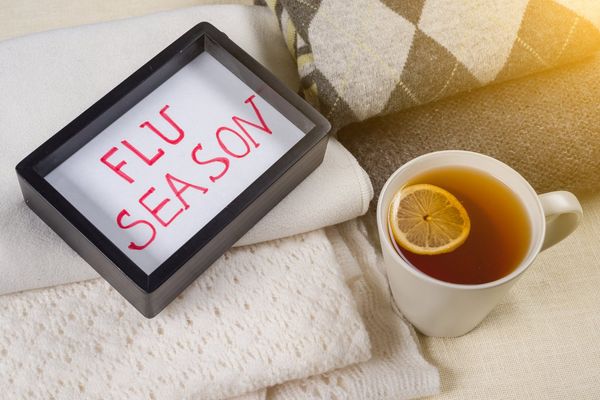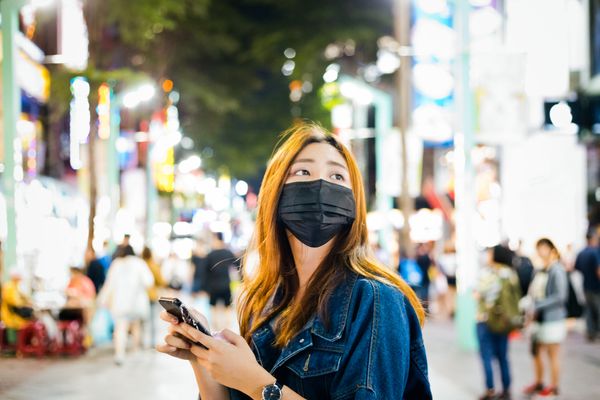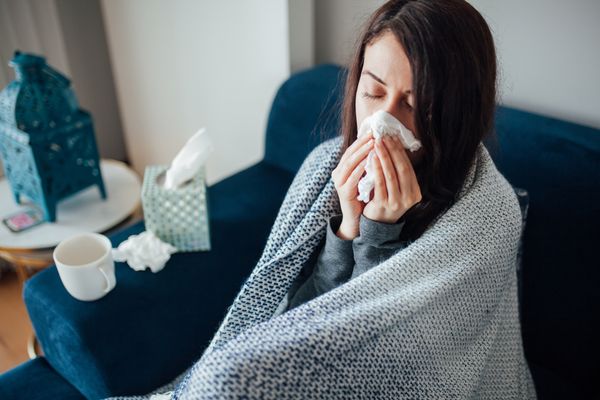It happens every year, just as we turn the calendar to October. Along with the pink signs reminding us that it's breast cancer awareness month are signs imploring us to get our flu vaccines.
It takes about two weeks for the vaccine to become fully protective, so it's recommended you get yours sometime before the end of October, before the flu starts to spread. (Note that getting vaccinated later can still be beneficial and protective, because the season can last as late as May.)
Sure, the flu is not typically as serious as cancer, but this highly contagious virus does pose a real threat and can indeed be deadly. The Centers for Disease Control and Prevention (CDC) has tracked the number of deaths in the U.S. from flu-related complications to be anywhere from a low of 12,000 during 2011-2012 to a high of 56,000 during the 2012-2013 season.
Yet, although the flu is a serious disease that causes illness, hospitalizations and deaths every year in the United States, many people skip their flu shot. Their reasons vary, and most are not based on fact:
- I'm allergic to eggs. Although flu vaccines are manufactured by growing viruses in eggs (and have been done this way for more than 70 years), you can still get a vaccine if you have an egg allergy. If your egg allergy involves just hives, it's safe to receive any licensed flu vaccine (and it's no longer necessary to wait 30 minutes after receiving the vaccine). If your allergy is more severe—meaning you have needed a shot of epinephrine or some other emergency intervention—you can still have a flu vaccine, but it should be given in a medical setting and supervised by a health care professional trained in managing and treating any severe allergic conditions.
- The flu vaccine will give me the flu. The vaccine is manufactured from an inactivated virus, so if you get sick after receiving a vaccine, chances are you were already sick with something. It's also possible you've come down with another form of respiratory virus besides the flu virus. (While there can be some side effects from the vaccine—like soreness, low-grade fever, headaches or muscle aches, which will dissipate within a day or two—those are side effects and not the flu.)
- My child (or grandchild) is too young for a vaccine. The vaccine is safe and encouraged for anyone 6 months or older. If it's their first time getting vaccinated, they'll need two doses spaced at least four weeks apart.
- I don't have a doctor, so I can't get the vaccine. Aside from a doctor or nurse, flu vaccines are available in many other settings, including health departments, pharmacies (pharmacists are trained in immunization techniques), urgent care clinics and many times your place or employment or school.
- I've never had the flu—therefore, I'm immune to it and don't need a vaccine. Age and certain chronic health conditions can affect immunity, and you can become susceptible to the virus even if you've never caught it. The flu viruses also change from year to year. The fact is that anyone can get the flu, even if they're otherwise healthy.
- The nasal spray flu vaccine is ineffective. While it might have been that way in the past, this year is different. It's a recommended option for non-pregnant women and people between ages two and 49.
- If I'm pregnant, I shouldn't get the vaccine. Both the CDC and the American College of Obstetricians and Gynecologists recommend the flu shot for all pregnant women, regardless of which trimester they're in. And since infants are at an increased risk of severe flu symptoms (and can't receive vaccines until they're six months old), the vaccine is beneficial to your baby as well, as the antibodies you'll develop will pass onto the baby through your placenta and breast milk, if you're breast-feeding.
- Antibiotics can help treat the flu. Because the flu is a viral infection and antibiotics work against bacterial infections, they won't help treat flu symptoms. However, if you develop a secondary bacterial infection as a complication of the flu, antibiotics may be helpful.
- I received a flu shot last year, so I don't need one this year. Each year, the influenza virus changes and mutates. What you were protected against last year is not necessarily what is the same projected threat this year (but even if the circulating viruses are the same, a yearly vaccine is still recommended). Also, your body's immune response fades over time.
- The stomach flu is a type of flu. Many people use the term "flu" to describe feeling ill with nausea, vomiting or diarrhea, but these symptoms are not the hallmarks of influenza. The flu is a respiratory disease, not a stomach or intestinal one.
Check out our Flu Education Resource for HCPs.
Some people may still get the flu after getting the vaccine, especially older people and those with compromised health, and some years the flu vaccines are not a perfect match for what is actually circulating—but it's smart to lower your odds.
If you get the flu, you should stay at home and avoid contact with other people.
If your symptoms are severe and you're at high risk for complications, you can be treated with a prescription drug known as an antiviral, which can speed your healing and help prevent serious complications. These work best if taken within 48 hours of getting sick.
People at high risk for complications include those 65 years of age or older, those with chronic diseases like asthma, heart disease or diabetes, children younger than five but especially children younger than two, pregnant women and women who are up to two weeks postpartum and residents of nursing homes and other long-term care facilities.
This year, in addition to the nasal spray, there are three vaccines: the inactivated influenza vaccine (IIV), the recombinant influenza vaccine (RIV4) and the live attenuated influenza vaccine (LAIV4). The CDC says there is no preference for any one over another. The vaccines protect against either three and four viruses (the fourth being an additional B virus) and are known as "trivalent" or "quadrivalent" vaccines.







